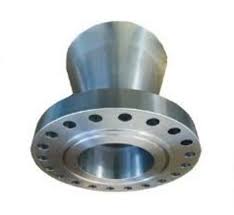Pipes, valves, pumps, and other mechanical equipment are all connected by expander flanges. This flange is typically forged and available in various materials, including carbon steel, stainless steel, and alloy steel. These expander flanges can have various surface treatments, such as varnished, painted, or epoxy-coated. These flanges are also available in a variety of sizes.
Chemical and petrochemical processing, offshore engineering, and electronics are all common uses for expander flanges in industrial and commercial applications. They are pressure and temperature rated in a variety of ways. Instead of threaded flanges, Expander Flanges can fit in smaller spaces and are easier to install. When connecting pipe systems, expander flanges are more effective and less expensive than reducer flanges. Furthermore, Expander Flanges provide a smoother, stronger structure that is more durable.
What Are The Applications of Expander Flange
Expander Flanges are generally used in places where a pipe is frequently dismantled. However, they can also be used in more traditional applications where there are few changes in the pipe size. Generally, Expander Flanges are used to increase the bore of a run pipe, allowing for a connection of a larger diameter. It is often used in high-pressure and corrosive environments.
Stainless Steel Expander Flange is also used in industrial and commercial applications. It has excellent corrosion resistance and good machining properties. Because of its durability and machinability, it is one of the most preferred flanges in many industries. Also known as EXPF, this flange can be purchased in various grades and is often provided at a discount.
Characteristics of Expander Flange
Expander flanges are manufactured to ANSI/ASME B16.5 specifications. The standards provide a list of materials and other specifications for expander flanges. The materials are graded and retested to ensure they are suitable for their intended use. All of the raw material used in the production of Expander Flanges is supplied with full traceability.
These flanges are made of various materials and are marked with the name of the manufacturer or supplier and the material they are made of. They are also marked with the class of the flange. For example, a stainless steel expander flange can be manufactured in grades 304 and 316/L. Similarly, nickel alloys, Monel, and super duplex steel are also available. Some flanges are also available in special coatings, such as phosphate, galvanized, or epoxy.





Comments